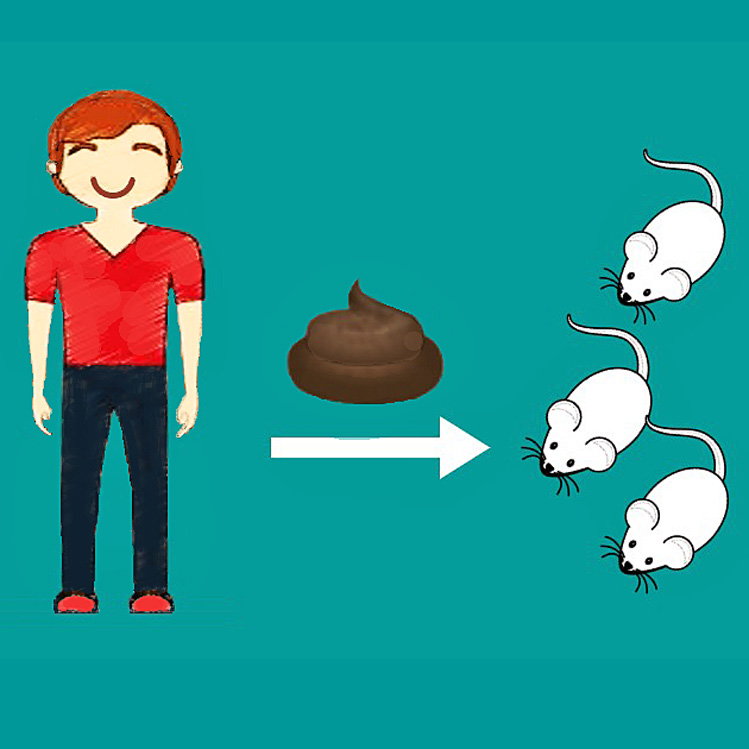
Can gut bacteria cause ADHD? While there are some signs that the bacteria in our gut play a role in mental health, it is difficult to establish whether – and how – this relationship is causal. By studying mice, researchers have now found that gut bacteria from individuals with ADHD can change the behaviour and brain functioning of mice after they have been given a poo-transplantation from these individuals. This is a first hint that gut bacteria indeed may play a part in the development of ADHD and other mental health conditions.
There are many factors that influence our mental health, and we still understand very little of them. One aspect that has gained a lot of interest in the past years is whether bacteria and other microbes in our gut can influence the functioning of our brain through what is called the gut-brain axis. Bacteria in the gut play an important part in the digestion of food, interact with our immune system, and provide essential substances that our bodies (including the brain) need for proper functioning.
The tricky part in this research is that there are also many factors that influence the composition of our gut bacteria. Diet is one of these factors, but also the way you are born (i.e. through natural birth or c-section), how much stress you experience, medication that you use, whether you live in a city or in a rural area, and much, much more. This makes research on causal influences between gut bacteria and mental health very complex.
To get some insights into how gut bacteria influence the brain and behaviour, researchers study mice (or other so-called model organisms such as rats and fruit flies). Mice in research experiments are raised in very controlled environments. Specifically, for studying the effects of gut bacteria, mice are reared in completely sterile environments. This means that there are no bacteria or other microorganisms in and on these animals, and so also their intestines are completely germ-free. Germ-free mice are not ‘normal’. They generally respond more strongly to stressors, are less fearful and have worse memory compared to mice raised in non-sterile environments [1]. However, these germ-free mice are very useful to test the effects of introducing specific bacteria to their gut.
This is what researchers Anouk Tengeler and Sarita Dam have done [2]. They obtained poo-samples from individuals with ADHD and from children without ADHD, and then transplanted a bit of this poo to the guts of the mice. This way, the bacteria from these samples colonized the guts of the mice. About a month later, the researchers found that the mice that had received the bacteria from the persons with ADHD behaved more anxious compared to the mice that had received bacteria from children without ADHD. They also found differences in the brains of the mice: connections between certain brain regions were less strong in the mice that had received the ADHD-bacteria.
The researchers write in their scientific publication that they do not suggest that ADHD is caused by changes in gut bacteria. What they do conclude is that these bacteria can influence brain functioning and behaviour, at least in mice, and this should, therefore, be further investigated to understand ADHD and other mental disorders. In the Eat2beNICE research consortium, we are studying this for example with the TRACE elimination diet trial. Here, researchers are collecting poo from children with ADHD that participate in the trial so that they can investigate the role of gut bacteria further.
You can watch a video abstract of the scientific article by Tengeler et al. here:
